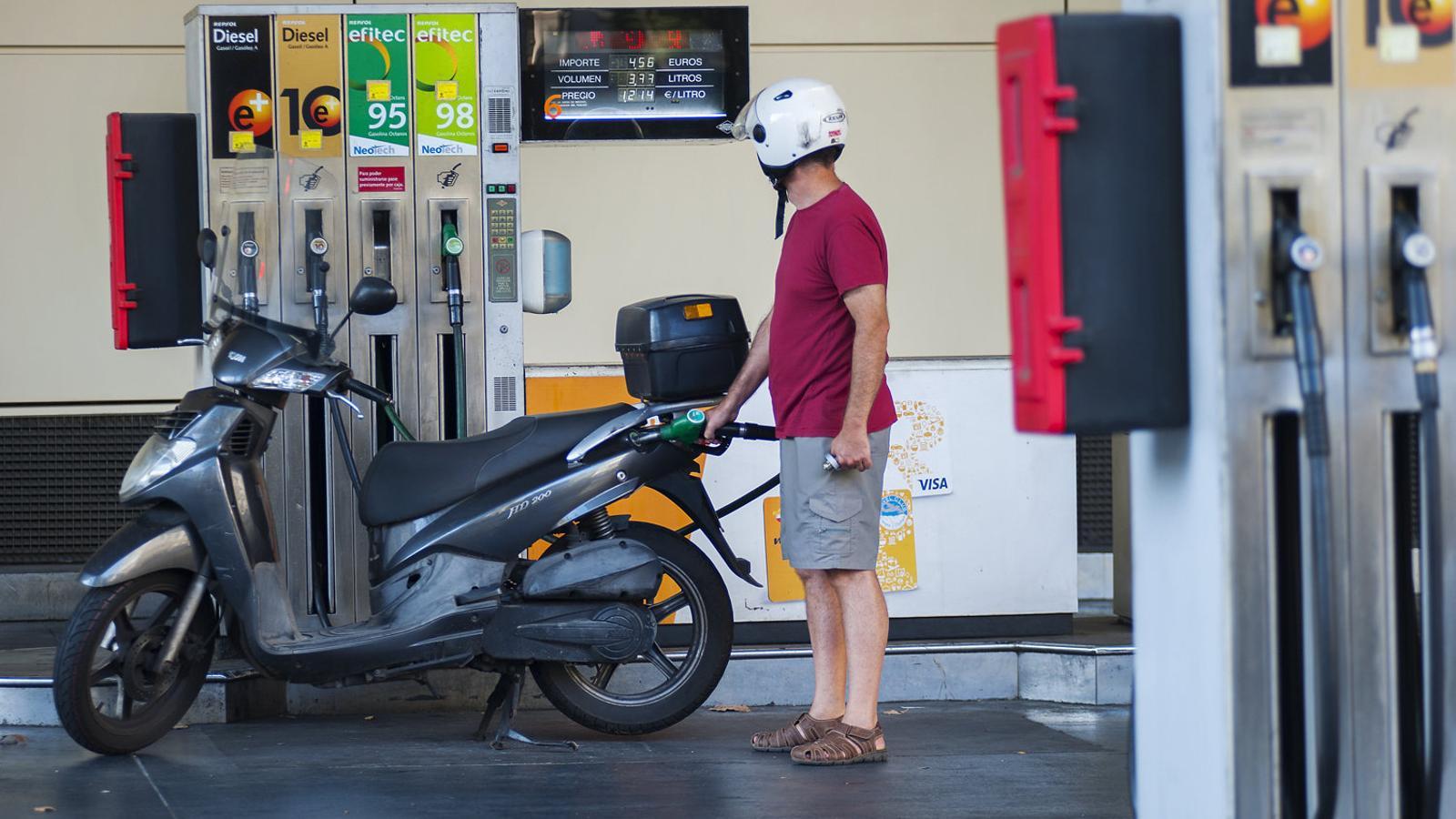Fuel prices are avoiding (for now) international tensions
The average price of gasoline and diesel in the State remains below the European average.


MadridIn mid-June, fuel prices were causing a scare. Although until then they had seemed to resist the conflict, Israel's attack on Iran That month, the threat of the closure of the Strait of Hormuz put upward pressure on the price of oil, and consequently, also on the price of gasoline and diesel, which rose by 0.4% in the penultimate week of June. Specifically, on June 19, a few days after the escalation of the conflict, the average price of a liter of diesel stood at 1.364 euros, according to the European Union Petroleum Bulletin (EU), while in the case of gasoline it did so at 1.463 euros.
The rebound, as usual, came late – the price of oil is not immediately passed on to gas stations – but it also coincided with the start of the first exit operation of the summer, between the end of June and the beginning of July, which usually translates into a price increase at the time of the general sale. But this August both fuels have given a respite. For three weeks now, the trend has been downward to the point that both gasoline and diesel are on track to close the month registering new lows.
Specifically, this second week of August, the average price per liter of diesel has dropped to 1.414 euros, according to data from theEuropean Union Petroleum Bulletin Updated this Thursday. This is the lowest level since the third week of June, just before many families started their vacations and when Israel's offensive in Iran had already been escalating. In turn, the average price of a liter of gasoline fell for the fourth consecutive week and stood at €1.479, a level not seen since June. Compared to last week, this represents a 0.7% drop in the case of diesel and a 0.27% drop in the case of gasoline.
Looking at the whole of 2025, gasoline has accumulated a 3% drop in price, while in the case of diesel it is 2%. However, the greater drop in gasoline has not disrupted the usual trend, where the price of diesel is below the leading fuel. In fact, only in the year in which the Russian invasion of Ukraine broke out, the price of diesel It was more expensive than the price of gasoline for the first time in the history of Spain.This occurred in March 2022, although the situation continued from August 2022 to February 2023, coinciding with the first year of the start of the conflict.
The impact of the war was greater in the case of diesel because some EU countries, especially Germany, not only imported a lot of crude oil from Russia, but also refined diesel. This caused a shortage of diesel in the European market, since producing diesel requires refining capacity, which some countries lack—not the case in Spain, which does—and also high-quality oil.
Prices in Spain are cheaper.
With the price level for the third week of August, the price of gasoline in Spain remains below the European Union average, which stands at €1.612 per liter. However, the average price of diesel is also lower. While in Spain it stands at €1.414, in the European Union it is at €1.55.
Until now, analysts have predicted that if the conflicts between Russia and Ukraine and between Israel and Iran do not escalate, the price of oil will remain stable. In any case, if there is one thing that is characterizing 2025, it is the strong volatility in the price of the so-called black gold as a result, precisely, of international tensions.
Specifically, the market consensus is that the price of Brent crude oil, the benchmark for Europe, will remain around $65 per barrel. Despite geopolitical instability, OPEC+ supply cuts have played a role in this price balance, although this summer it reopened the tap. These cuts were offset by historically high production levels in the United States. Furthermore, the current price is high enough to allow the main oil exporting countries to achieve fiscal balance. Added to this is the fact that there is no danger of shortages, at least for the time being.
However, it should be noted that fuel prices (gasoline and diesel) not only depend on the performance of crude oil, but also have a specific price, independent of that of oil, in addition to the impact of taxes, the cost of raw materials and logistics, as well as gross margins.
